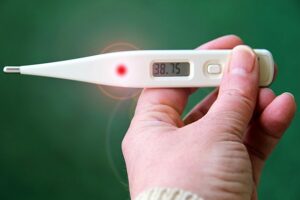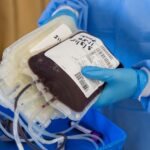What causes your Fatigue?
Fatigue can be caused by various physical and mental illnesses and lifestyle factors, making it difficult to diagnose. Simple solutions like avoiding caffeine at bedtime may help, but more serious causes like heart disease or COPD may require long-term treatment. Your doctor can help pinpoint the cause and guide you toward recovery by addressing your health issues, diet, exercise, and lifestyle habits.
Feeling tired all the time? Here are some reasons why:
- Work-life imbalance
- Information overload
- Societal pressure
- Health and lifestyle choices
- Poor sleep quality
How to Overcome Fatigue
Quality sleep: Aim for 7-9 hours per night, maintain a consistent sleep schedule, and create a relaxing sleep environment.
Stay hydrated: Drink plenty of water and avoid excess alcohol and sugary drinks.
Get moving: Engage in enjoyable physical activities like yoga or walking.
Conquer stress: Practice mindfulness meditation and engage in hobbies you enjoy.
Fuel up: Maintain a balanced, nutrient-rich diet with a variety of healthy whole foods.
Limit caffeine: Monitor your body’s response to caffeine and consider herbal teas as an alternative.
Take micro-breaks: Schedule short, frequent breaks to recharge your mind and body.
Work smarter: Organize your time, focus on important tasks, and use tools like planners or apps.
Seek community: Spend time with friends and family for social support, or consider joining support groups.
Consult your doctor: If you still feel chronically tired, consult a healthcare professional to rule out underlying medical or mental health conditions.
Why Meditation is so important?

Meditation can help boost energy, reduce stress, and improve focus in our busy lives. Different meditation styles, such as mindfulness, visualization, guided meditations, and movement practices, can help fight fatigue and increase energy levels. Embrace meditation as a tool to create your own energy, clarity, and inspiration.
Types of Fatigue
There are three categories of fatigue:
- Physiologic fatigue: caused by exercise, sleep issues, diet, or other nonmedical factors. Addressing the lifestyle factor usually helps.
- Secondary fatigue: lasts 1-6 months due to an underlying health condition. Energy may return with time or medical treatment.
- Chronic fatigue: lasts longer than 6 months and doesn’t improve with rest or sleep. It may be caused by a new illness or medical condition.
Allergies, Hay Fever, and Fatigue

Common symptoms of allergic rhinitis include fatigue, headache, itchiness, nasal congestion, and drainage. To diagnose allergic rhinitis, your doctor will assess your symptoms and determine the allergen triggers through history or testing. To reduce symptoms, avoid allergens and consider medication such as nasal steroids, oral antihistamines, nasal antihistamines, leukotriene modifiers, and mast cell stabilizers. In severe cases, allergy shots may be recommended, involving weekly shots over 3-5 years.
Anemia and Fatigue

Anemia is a common condition in the U.S., affecting over 5.6% of Americans. It can cause fatigue, dizziness, feeling cold, and crankiness. Anemia is a result of not having enough red blood cells and can be caused by various factors such as heavy menstrual cycles, GI problems, lack of iron, folic acid, or vitamin B12, and chronic diseases like diabetes or kidney disease. To confirm a diagnosis, a blood test is necessary. Treatment may include iron supplements and adding iron-rich foods to your diet, along with consuming more vitamin C to help with iron absorption.
Depression ,Anxiety and Fatigue

If you’re experiencing symptoms of depression or anxiety, such as sadness, fatigue, agitation, trouble sleeping, or excessive worrying, it’s important to talk to your doctor. These conditions are treatable medical problems, and your doctor can discuss treatment options with you, which may include medication, psychotherapy, or a combination of both. If there’s no physical cause for your symptoms, your doctor may refer you to a psychiatrist or psychologist for further evaluation.
Viral or Bacterial infection and fatigue

Fatigue can be a symptom of various infections such as flu, mononucleosis, COVID-19, cytomegalovirus, hepatitis, HIV, and pneumonia. Other symptoms may include fever, head or body aches, shortness of breath, or loss of appetite.
Food Allergies, Food tolerance and Fatigue

If you’re experiencing fatigue, sleepiness, or continued exhaustion, it could be due to hidden food intolerances or food allergies. Consider asking your doctor about the elimination diet or a food allergy test to identify offending foods. Celiac disease, which is the inability to digest gluten, can also cause fatigue.
Sleep disorders and fatigue

Sleep disorders can disrupt your sleep and affect your health. If you experience chronic fatigue, loud snoring, and wake up feeling exhausted, you could have sleep apnea. This condition can cause low blood oxygen levels and may increase the risk of stroke or heart attack if left untreated. Treatment options include CPAP devices and surgery in severe cases. If you or your partner notice these symptoms, it’s important to seek medical advice.
Diabetes and Fatigue

If you have symptoms of type 2 diabetes, such as extreme fatigue, increased thirst and hunger, frequent urination, and unexplained weight loss, contact your doctor for testing. Treatment may involve weight loss, increased physical activity, blood glucose control, medication, and dietary changes. Lifestyle changes like quitting smoking, controlling blood pressure, and managing cholesterol are also important for managing type 2 diabetes.




